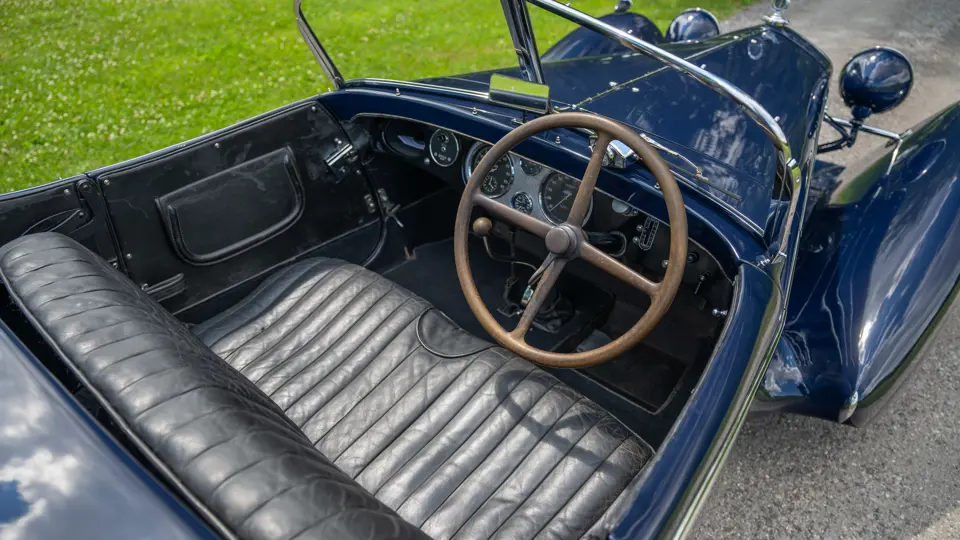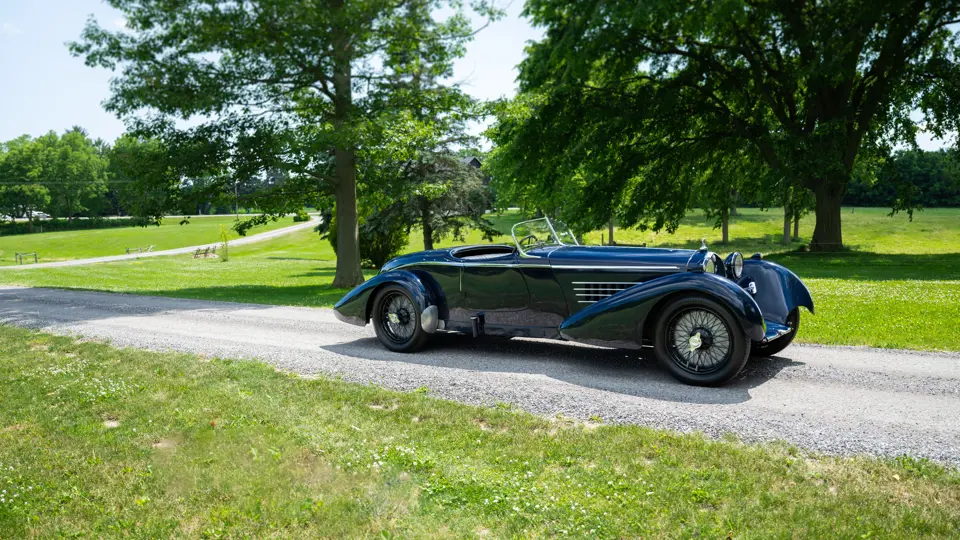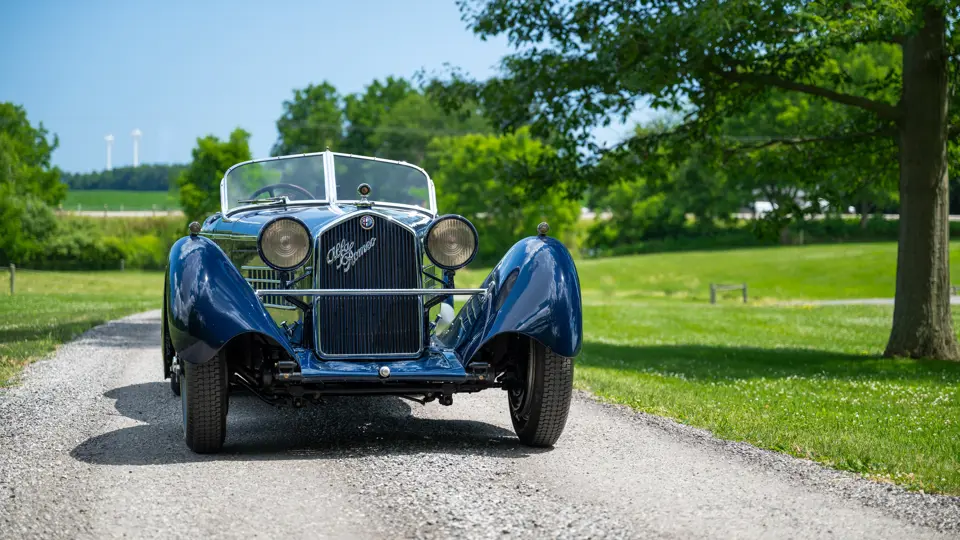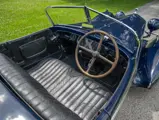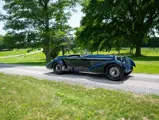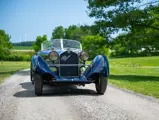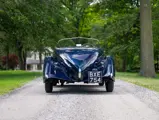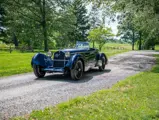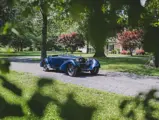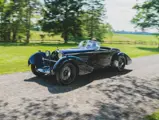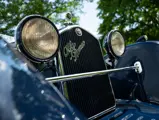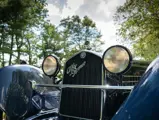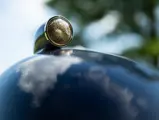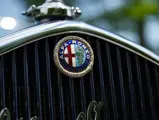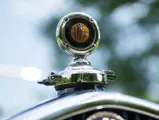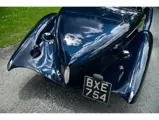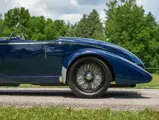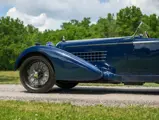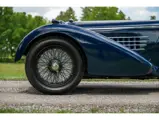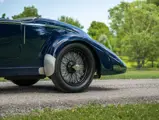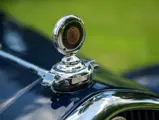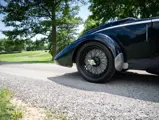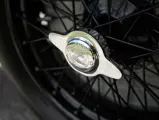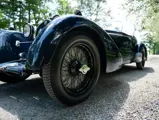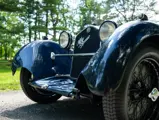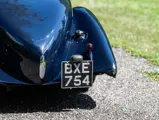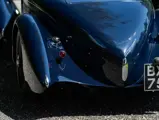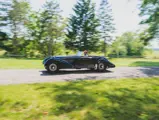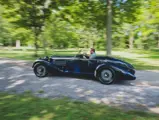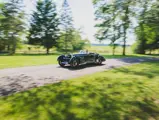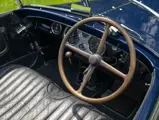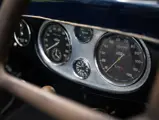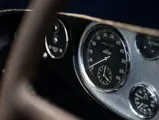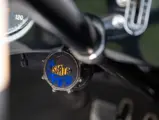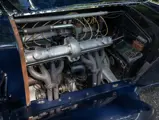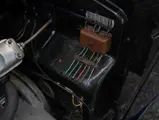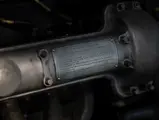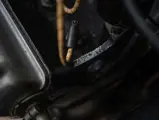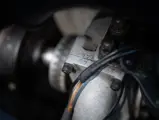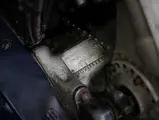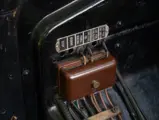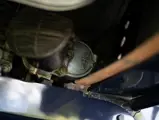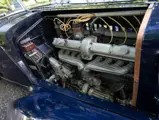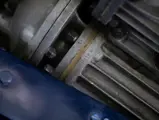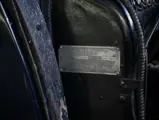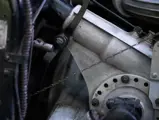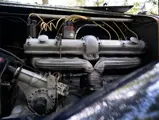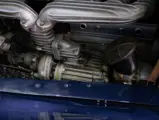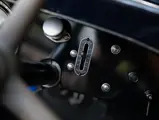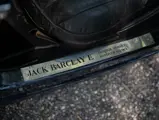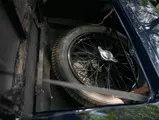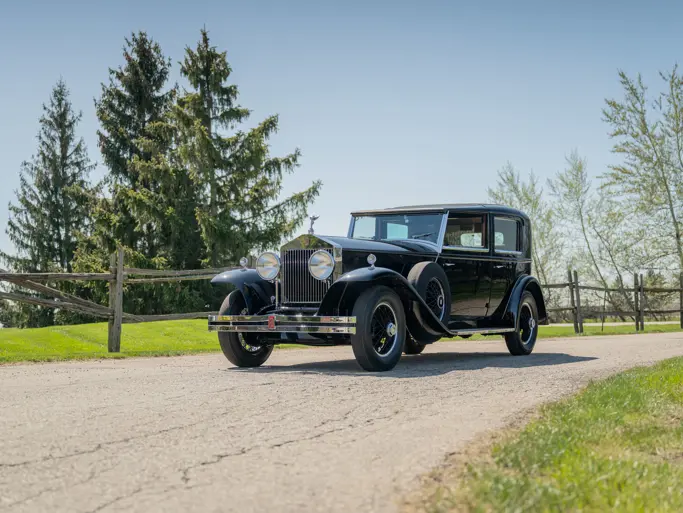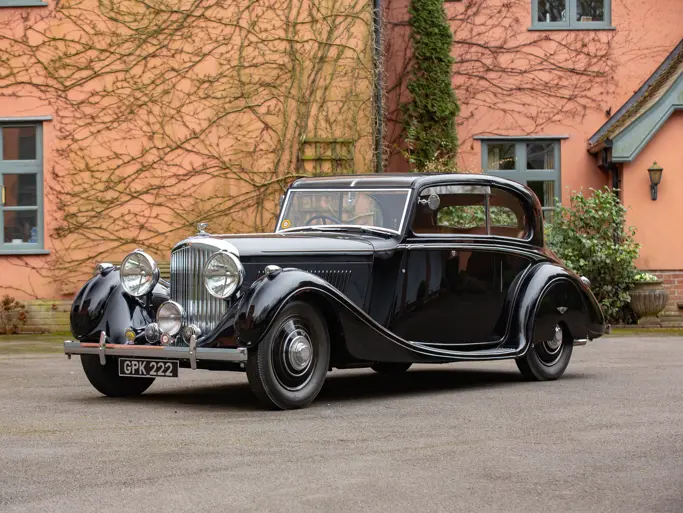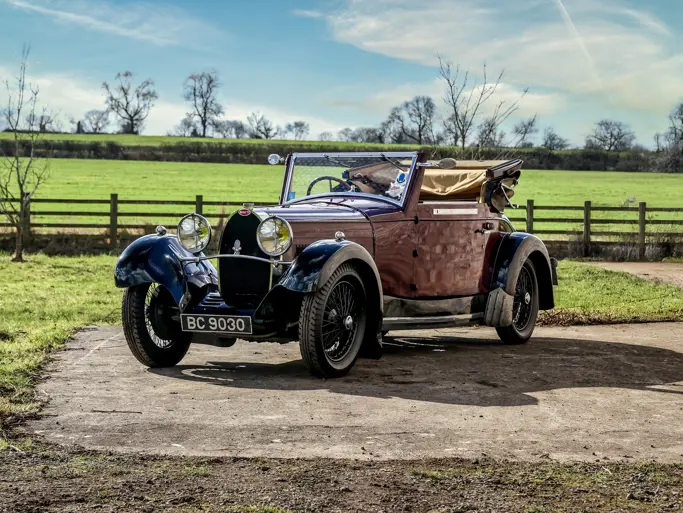
1934 Alfa Romeo 8C 2300 Lungo Spider by Eagle Coach Works
{{lr.item.text}}
$4,075,000 USD | Sold
{{bidding.lot.reserveStatusFormatted}}
- A highly respected, very pure example of the legendary “2.3”
- Formerly the property of renowned Alfa Romeo historian Angela Cherrett for over four decades
- Strikingly handsome coachwork fitted prior to delivery for London dealer Jack Barclay
- Never fully restored but always well-kept; winner of numerous concours awards
- Accompanied by a fascinating history file, including the original buff logbook
A LEGEND IN ITS OWN TIME
Under the Alfa Romeo 8C 2300’s long snout was tucked an engine comprised of two four-cylinder blocks, end to end, with twin overhead camshafts and hemispherical combustion chambers. The 10-main-bearing crankshaft was split in the middle, with a pair of gears at its heart that drove the camshafts, a supercharger, oil and water pumps, and the generator—a marvelous symphony of complication that would delight the enthusiast of Swiss watches. When properly set-up, it was seamless in operation; an 8C 2300 was a superb driver’s machine, as witnessed by its impressive roster of victories in the great races of the world during the early 1930s, including four consecutive victories at Le Mans from 1931–1934. Like all the Great Cars, it made its own legend, and in its own time.
The handful of 2.3s that survived the competition-oriented use of their original owners have largely slipped into the hands of museums and other permanent collections. Offered here is one of the few exceptions to that rule—a car which still remains very much as its first private owner enjoyed it, due largely to one of the foremost enthusiasts and historians of the marque, who took superb care of it for the better part of a lifetime.
THE CHERRETT 2.3
Per the noted Alfa Romeo historian Simon Moore in his standard reference work, The Legendary 2.3, chassis number 2311237 was first mounted with a cabriolet body by Castagna and registered to Alfa Romeo itself, with a certificate of origin dated 2 August 1934 and registration MI 30378 issued on 4 August, although searches for that registration in Italian records in more recent years have come up naught. As was commonly done by the factory at the time to save paying duties on cars leaving Italy, Alfa Romeo declared in November 1935 that the car had been broken up along with its predecessor in production, 2311236; this was not the case, as both cars had simply been exported to England in the auspices of the powerful London dealers, Jack Barclay.
Jack Barclay registered 2311237 in its own name as BXE 754 on 3 April 1935, and sold it on 11 April to its first private owner, racing driver Roy Gibson, who took delivery of the car fitted with the alloy boattailed spider coachwork that it carries today. No small amount of foreign influence can be found in the spider’s curves; the historically minded enthusiast will note traces of an American Auburn speedster and French Amilcar Pegasé. Yet, this stunning one-off body is believed to have been built in England for Jack Barclay by Newns Coach Builders and Engineers of Thames Ditton, Surrey, a firm which worked primarily under the trade name of Eagle Coach Works Ltd. An invoice on file from Newns to another client, dated December 1935, refers to the mounting of “a second hand Coupe Body…on your own Alfa Romeo,” indicating that Eagle was in possession of a Coupe body—a term that could refer to either a fixed or drophead version in the British coachbuilding parlance of the day—removed in earlier months from a 2.3 chassis. This is thought to be the Castagna cabriolet body from 2311237.
Gibson retained the Alfa Romeo until after World War II, then sold it in August 1945 to Grosvenor Motors Ltd. They appear to have retained it for nearly a year before selling it in August 1946 to Harold E. Kerswill, who, after a brief period of ownership, passed the car in January 1947 to Michael Daniels. Mr. Daniels sold the Alfa Romeo in October 1957 to Henry Senn, who in February 1964 sold it to the most prominent figure in its history, Angela Cherrett of Dorset. Ms. Cherrett’s name is well-known to the Alfa Romeo and vintage sports car communities, as for half a century she has been one of the foremost researchers and chroniclers of Alfa Romeo history, most prominently in her well-known works, Alfa Romeo Tipo 6C: 1500, 1750, 1900 and Alfa Romeo Modello 8C 2300. She has owned, lovingly kept, and enjoyed some of the finest examples of the marque from both the pre-war and post-war eras, and remains a beloved figure in the Alfa Romeo world.
Angela and Allan Cherrett drove her 2.3 in the nascent vintage racing scene (as witnessed by a photo taken at Silverstone in 1965) as well as to numerous events throughout Europe. It would remain one of her prized possessions for over four decades, during which time Cherrett assembled a complete history file for the car, which accompanies the sale, including the original buff UK logbook, and numerous pieces of correspondence and invoices from her ownership and prior.
In the spring of 2008, it was acquired by the present American owner directly from Cherrett, consequently leaving UK ownership for the first time in 73 years after Jack Barclay first took delivery in March of 1935. Cherished in its current fine collection for over 16 years, it has been most sensitively kept and preserved; resisting the temptation of a concours restoration on a car that has never been truly restored.
In large part the Alfa Romeo was last refinished by Ms. Cherrett in the 1960s to its current dark blue exterior, with new upholstery and carpets in about the same time period. In the present ownership cosmetic changes have been few, with portions of the bodywork refinished as necessary but in sensitive fashion to preserve the well-earned patina. Inspection upon acquisition by RM Auto Restoration indicated that a sidemounted spare had been added, referenced by Moore as having been done in the 50s, and the windshield subtly raised by adding additional material to the top of the windshield frame (as proven by a 1962 invoice for this work on file); these add-on extension pieces were removed by RM to lower the vee-windshield to its proper and original height, and the sidemounted spares fitted were also removed with a spare set in the boot to return the exceptionally dramatic flow of line as originally intended.
Most significantly, in a world full of “bitsa” 2.3s, this Alfa Romeo retains the coachwork and all of its original major mechanical components from its delivery to Roy Gibson, down to the original supercharger. Such is its significance that, despite the fact it has never been fully restored, it has been well-appreciated by concours judges, having been exhibited at the Pebble Beach Concours d' Elegance in 2010 and most prominently receiving Best of Show European at the Concours d’Elegance of America at St. John’s in 2013, as well as the Ciao Italy Award for Best Italian Pre-War Car at The Elegance at Hershey and Best Full Classic at the Indianapolis Motor Speedway Celebration of Automobiles, both in 2014. It has also remained in good running order, having been driven with Don McLellan of RM Auto Restoration on the 2011 Alfa 8C Tour, a 1,000-mile trip on high altitude mountain roads.
Combining the racing pedigree of the 8C 2300 with spectacular one-off styling, this 2.3 is a thrill to admire inside the engine compartment and out. It is even more of a thrill to actually experience a supercharged 8C Alfa Romeo at speed—savoring a legend, as it was meant to be.
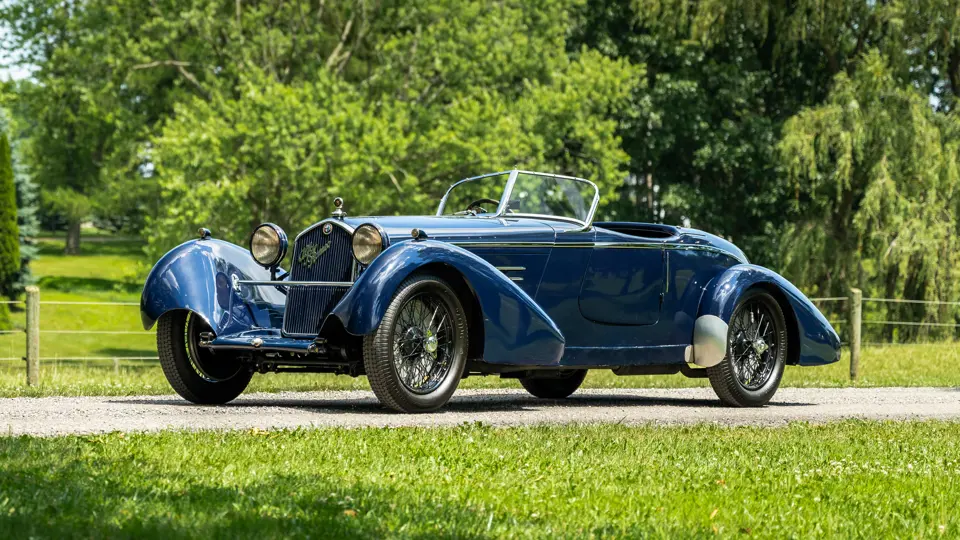



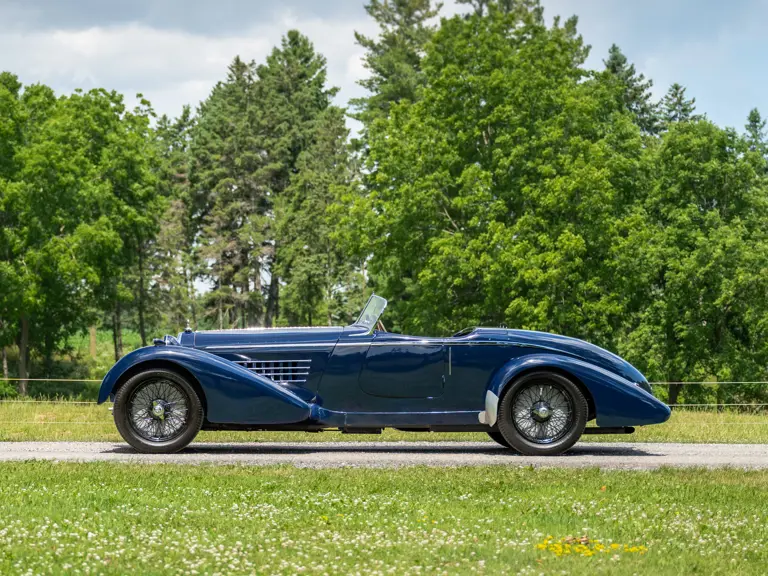
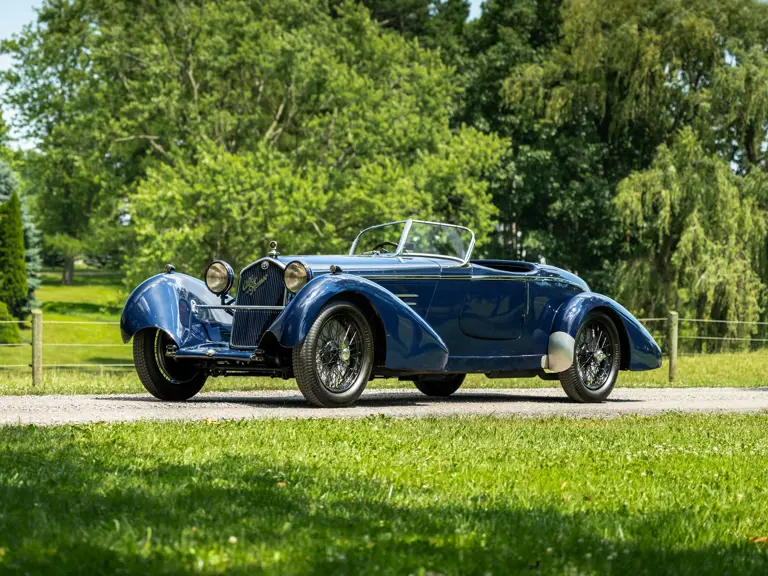
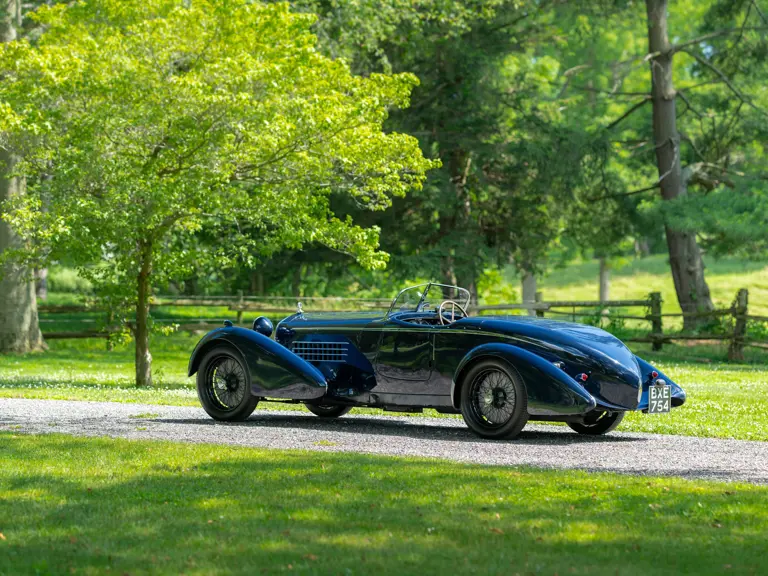
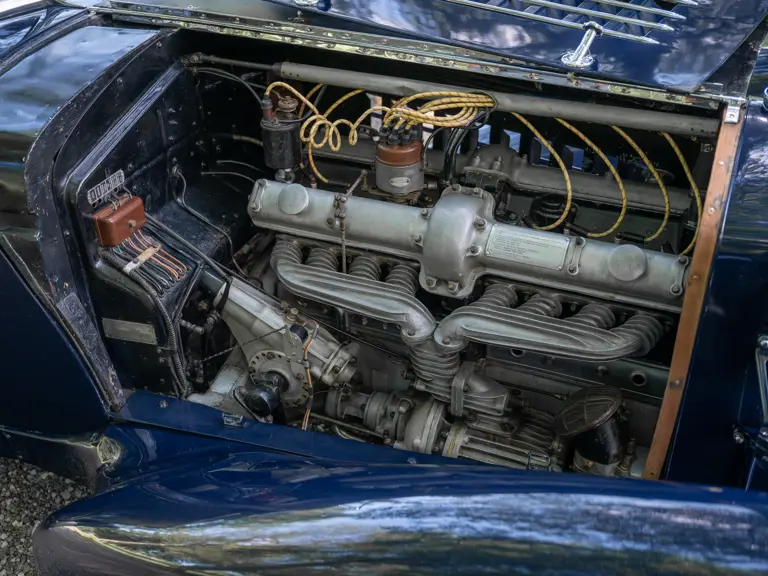
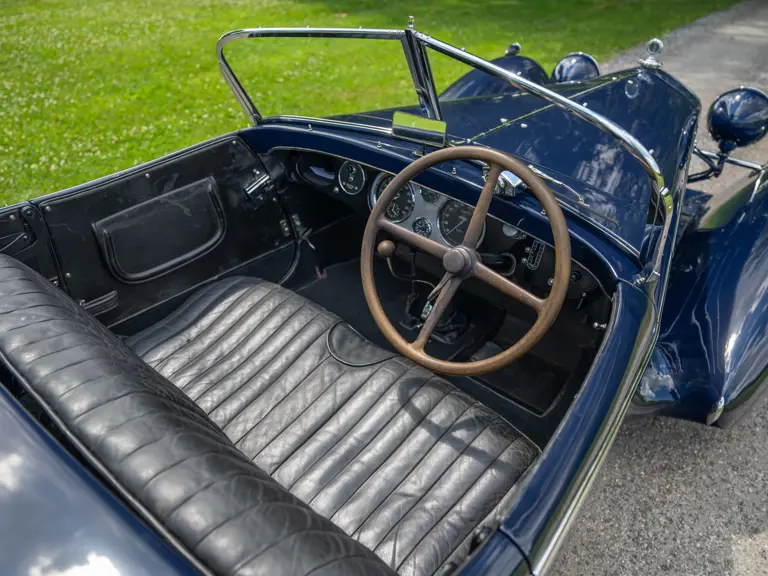
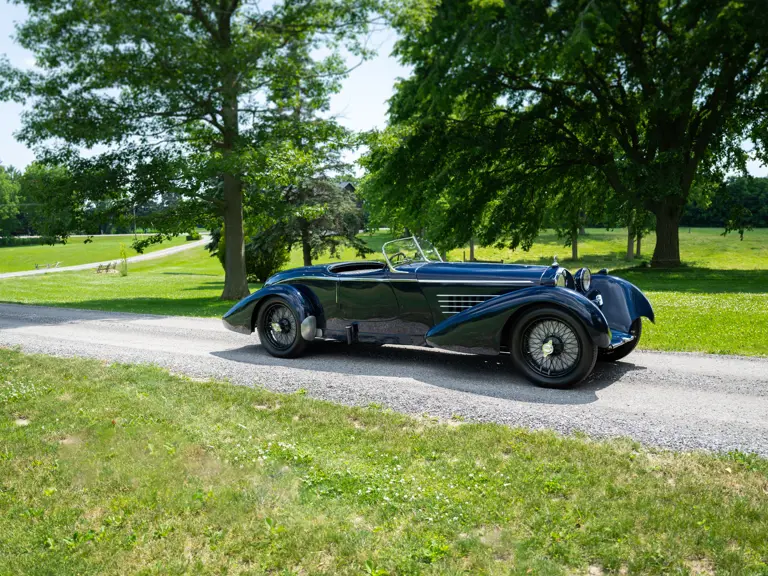
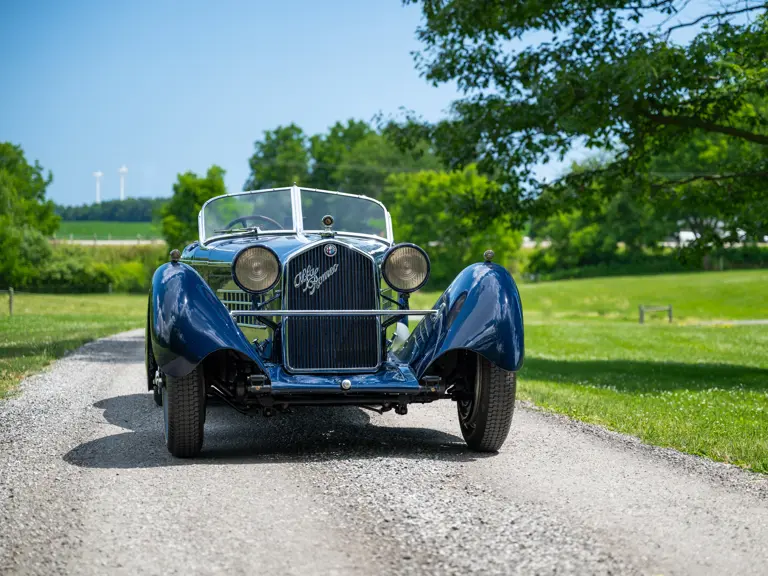
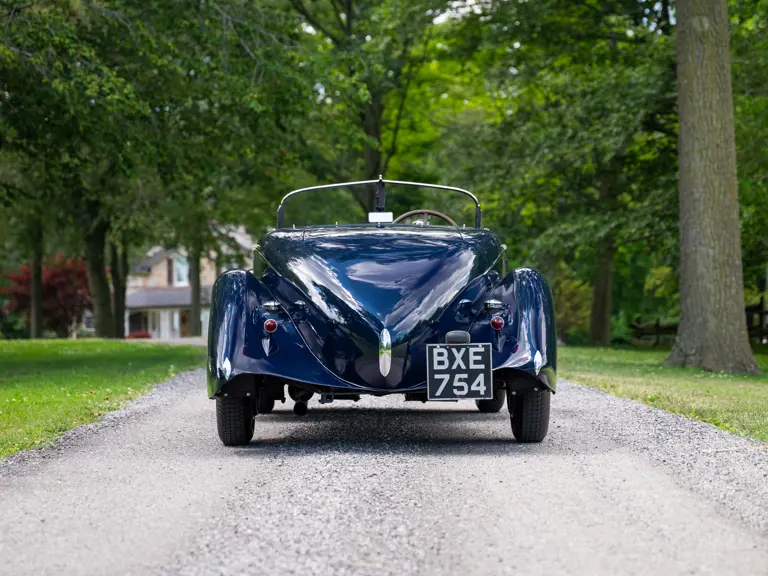
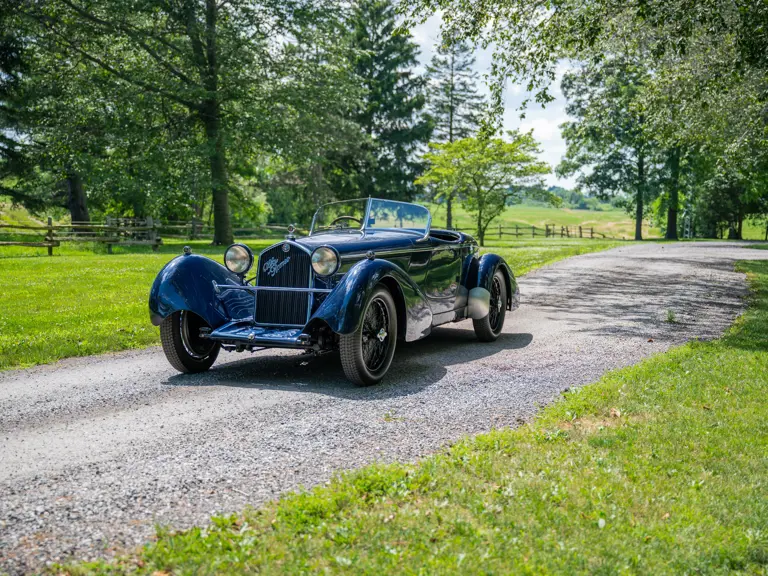
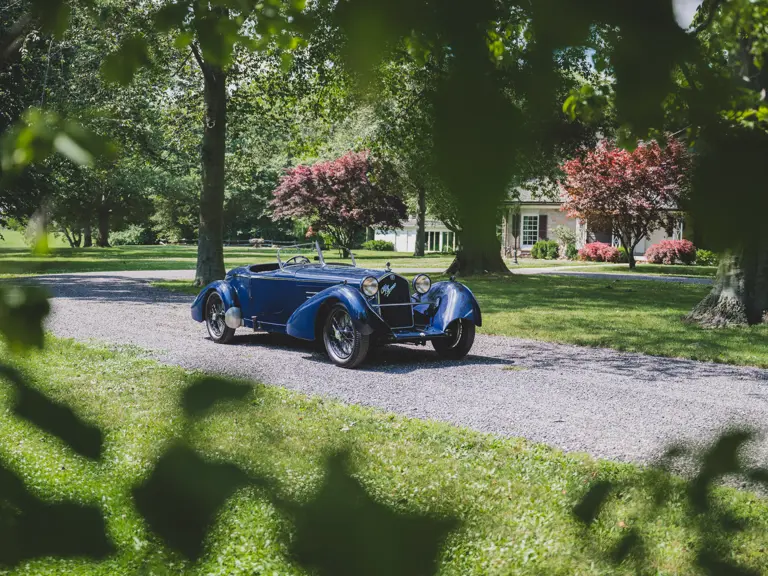
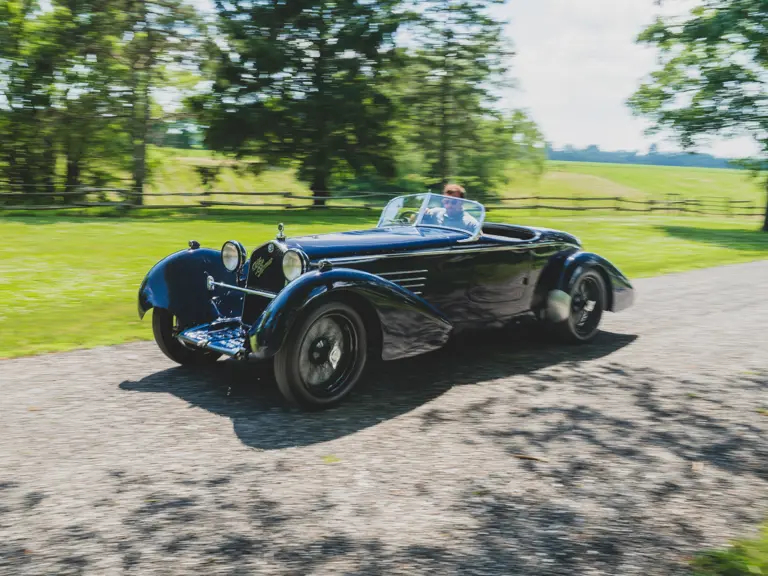
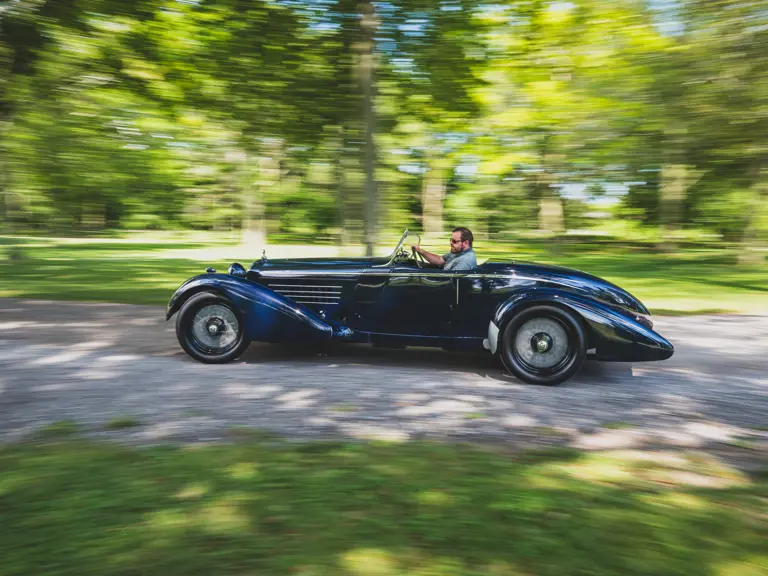
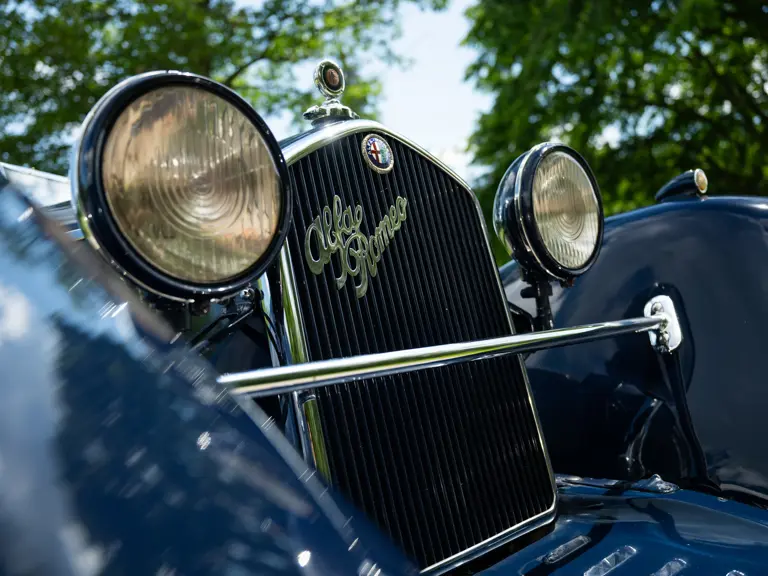
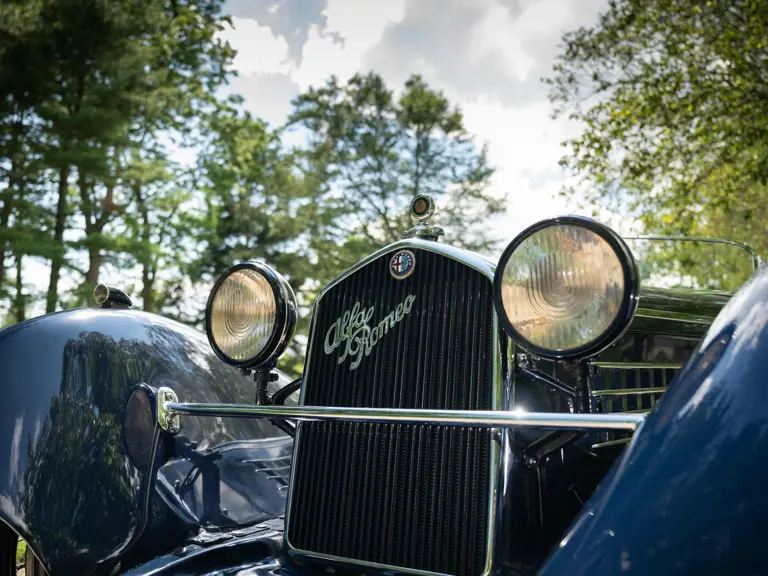
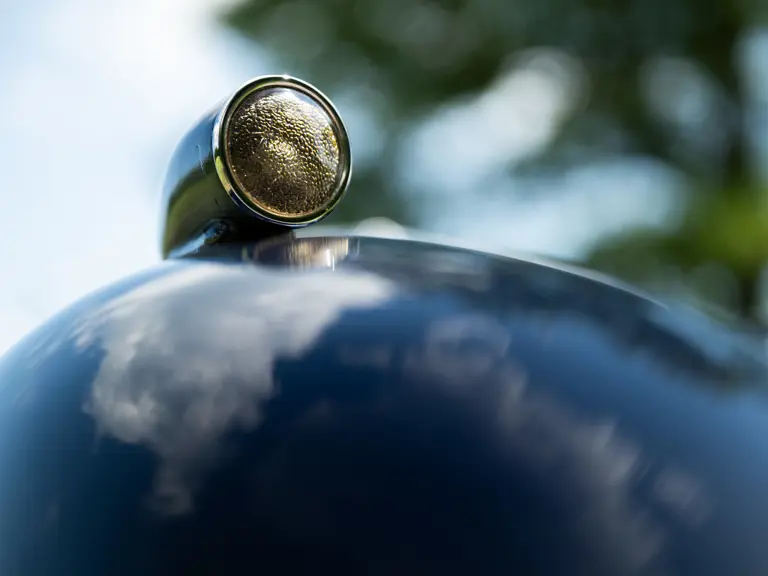
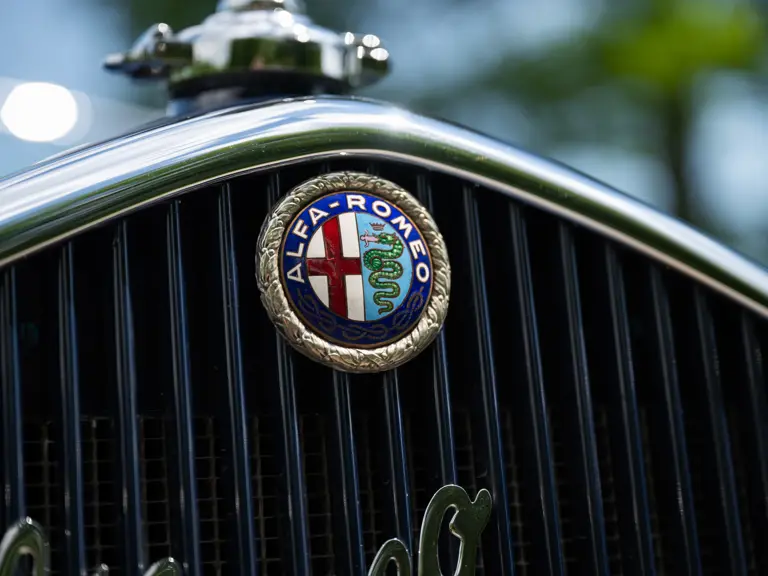
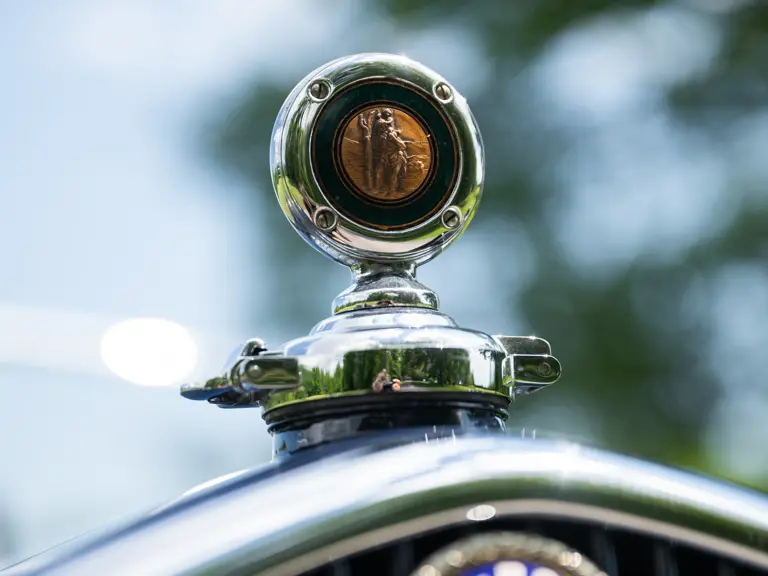
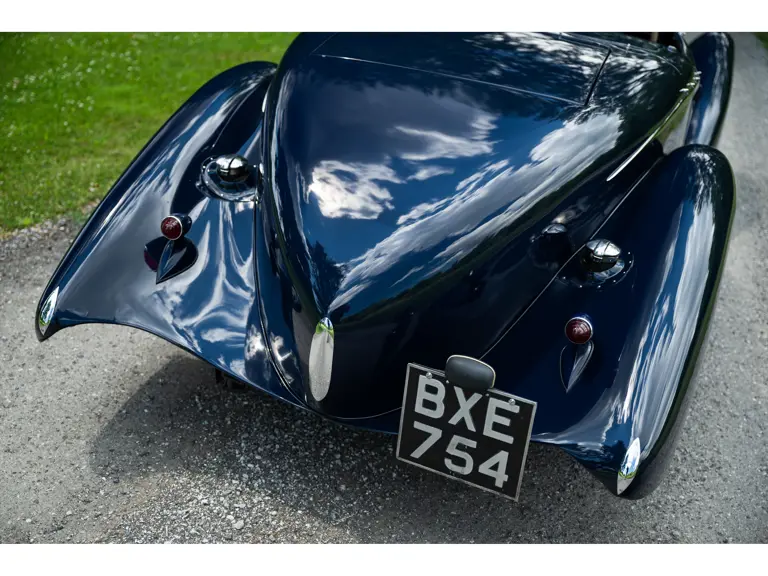
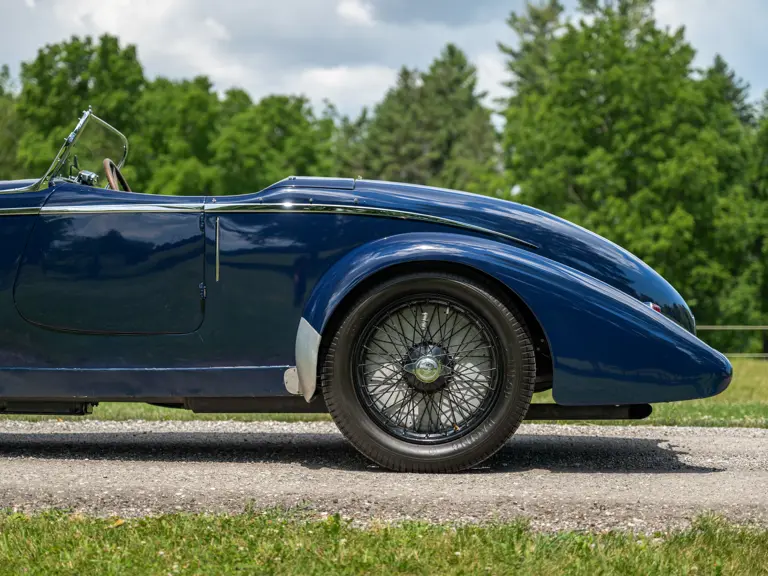
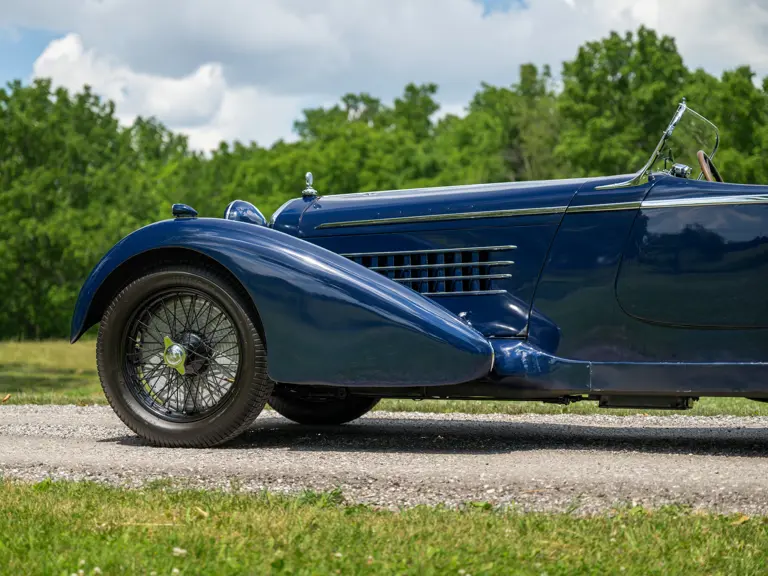
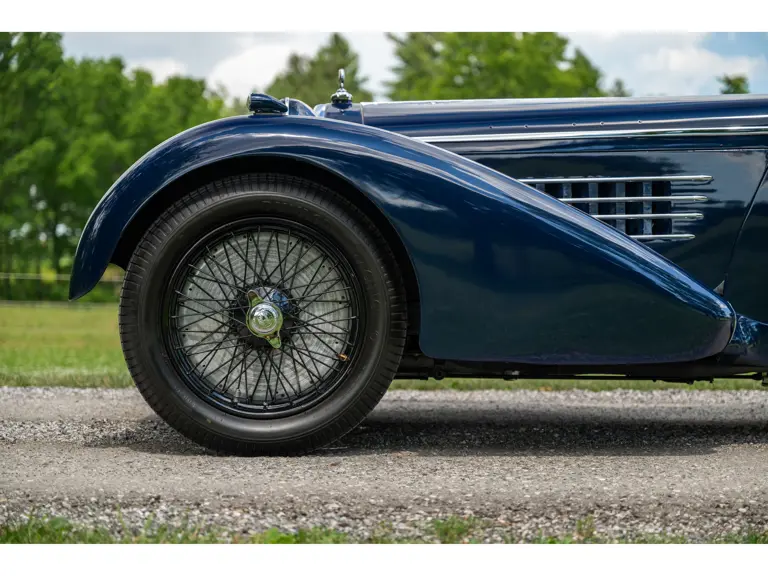
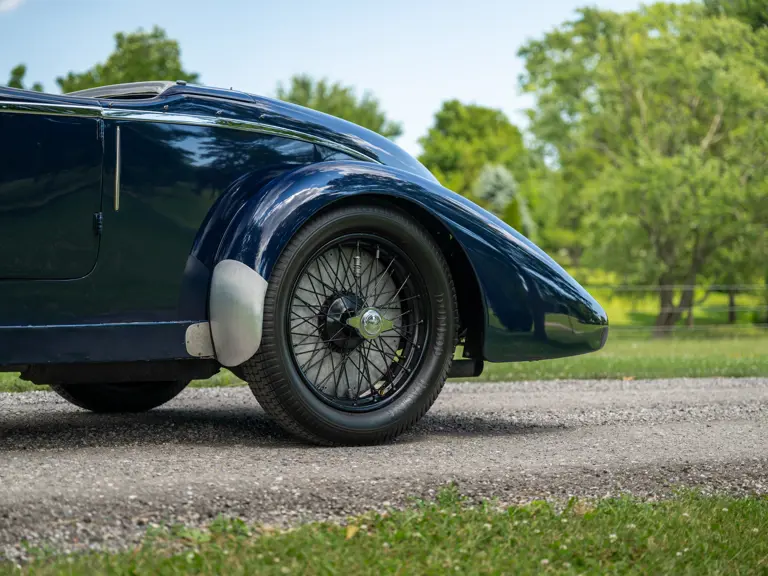
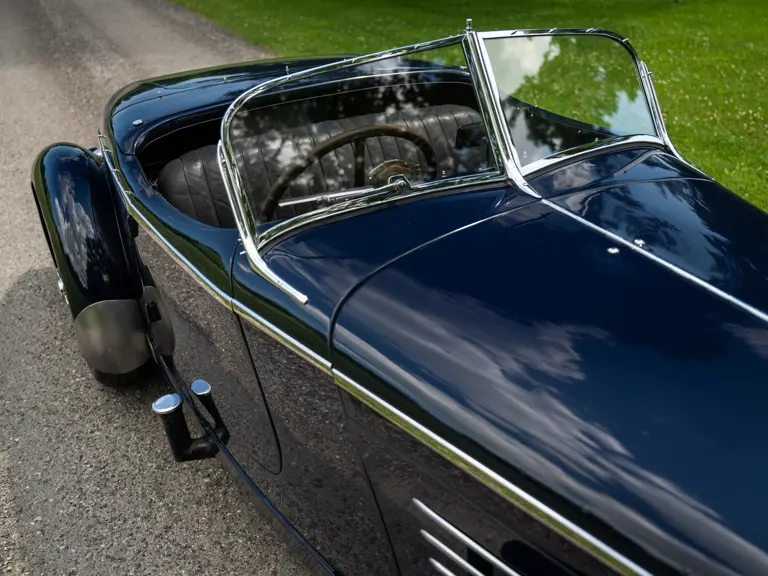
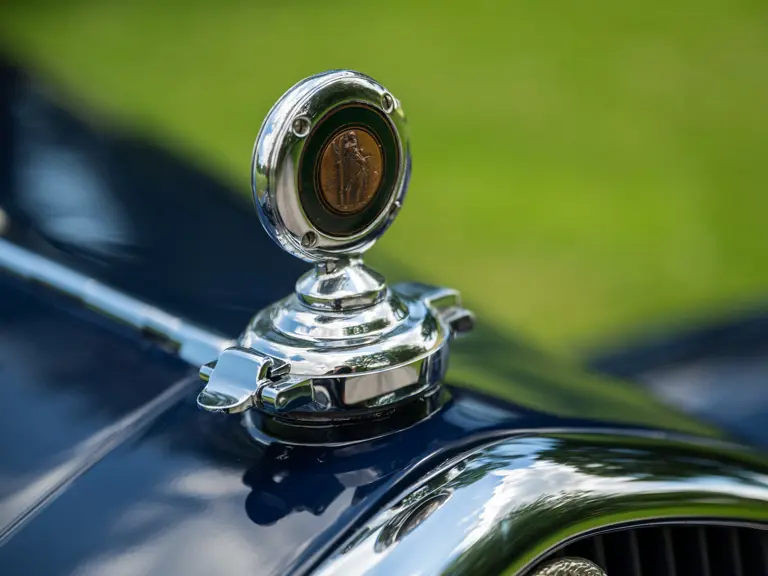
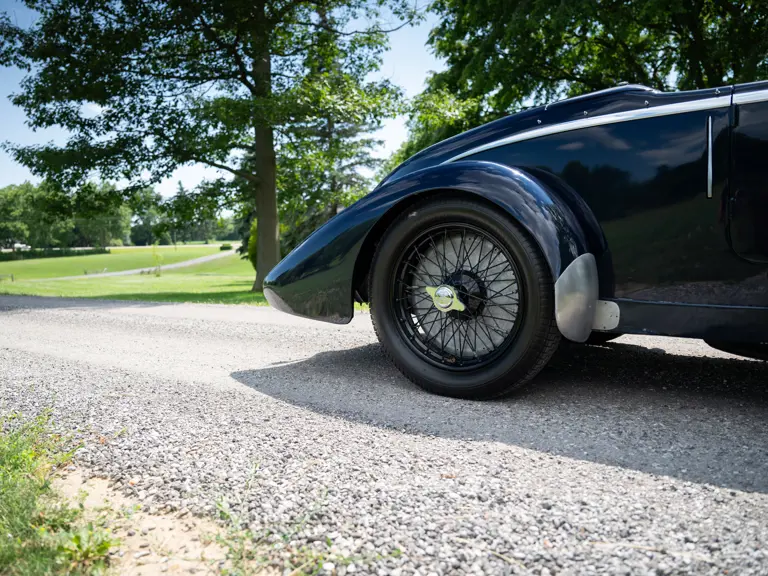
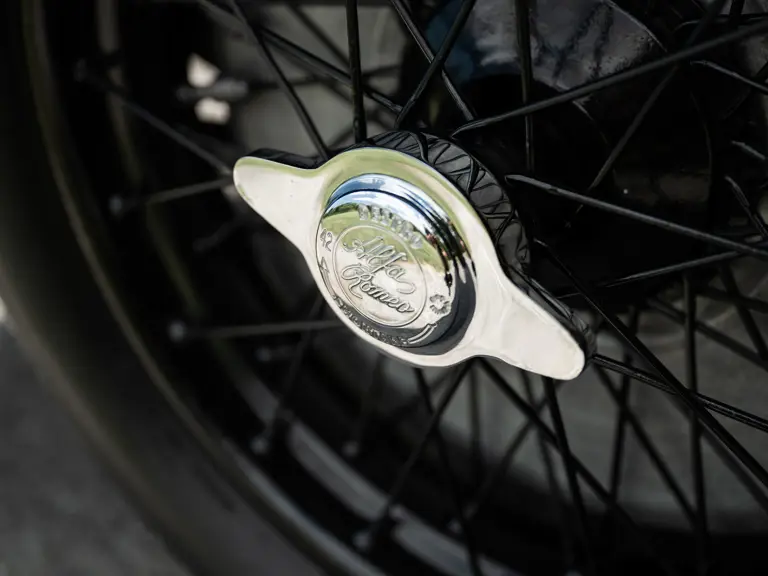
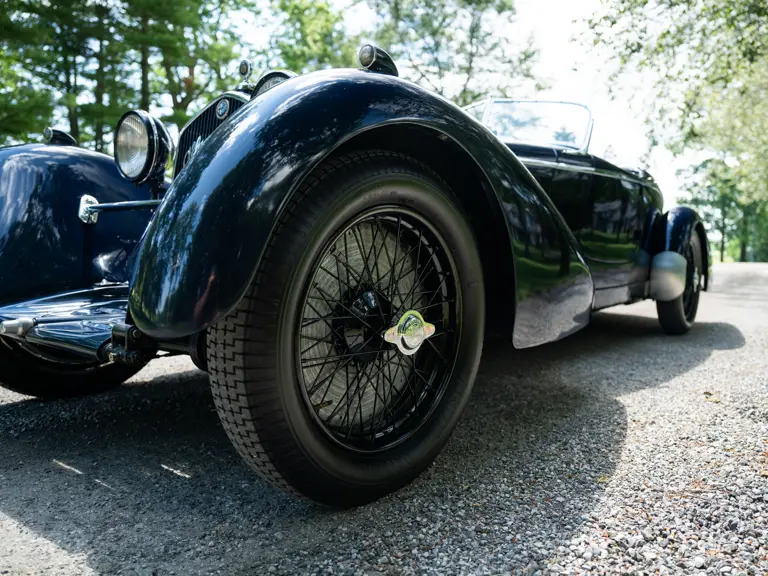
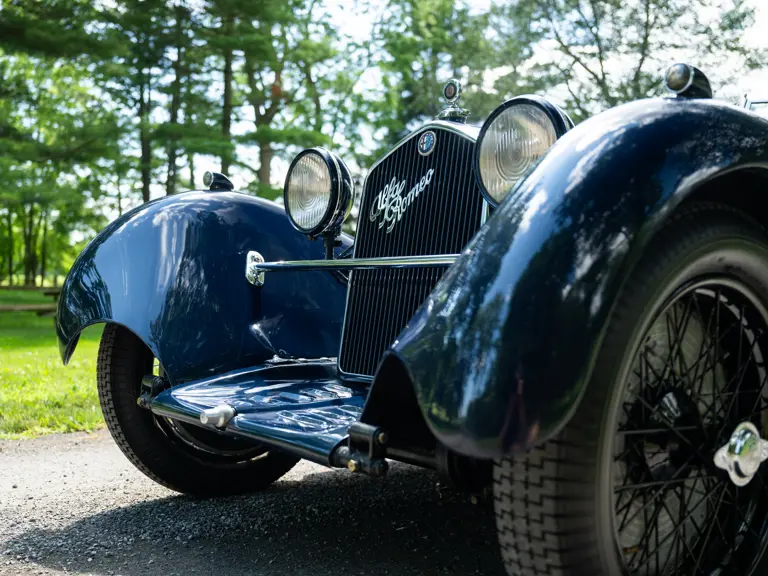
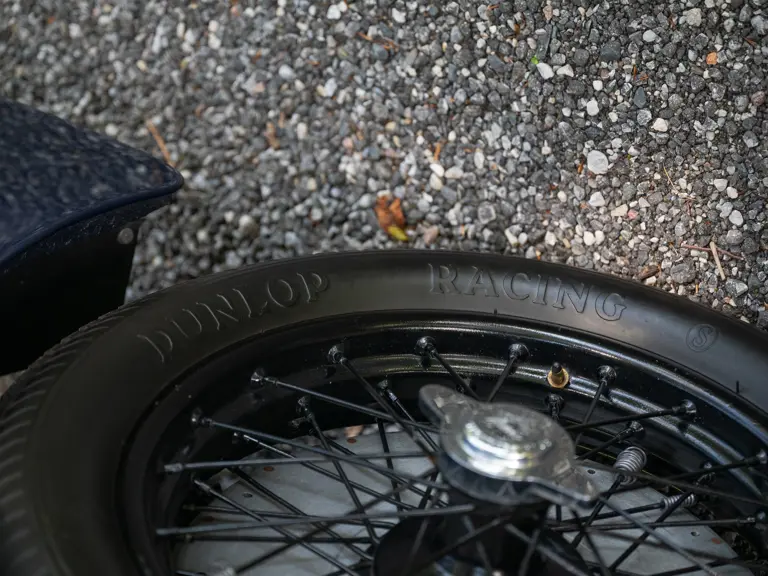
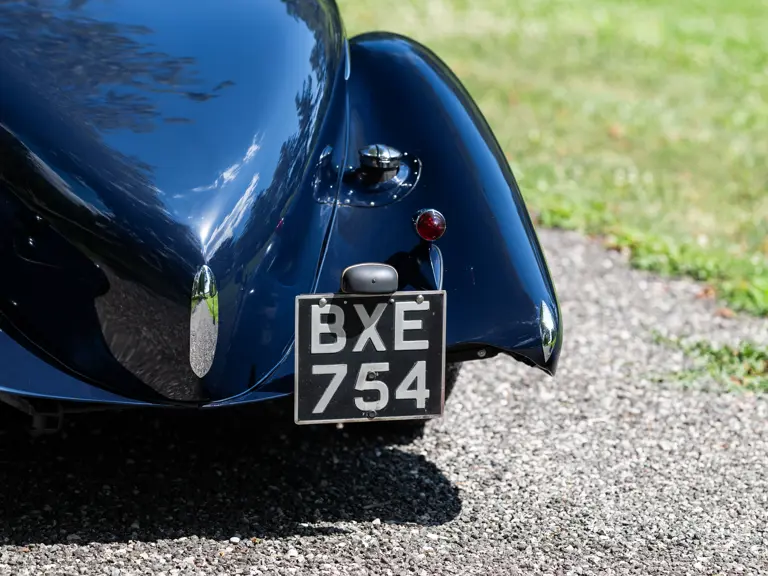
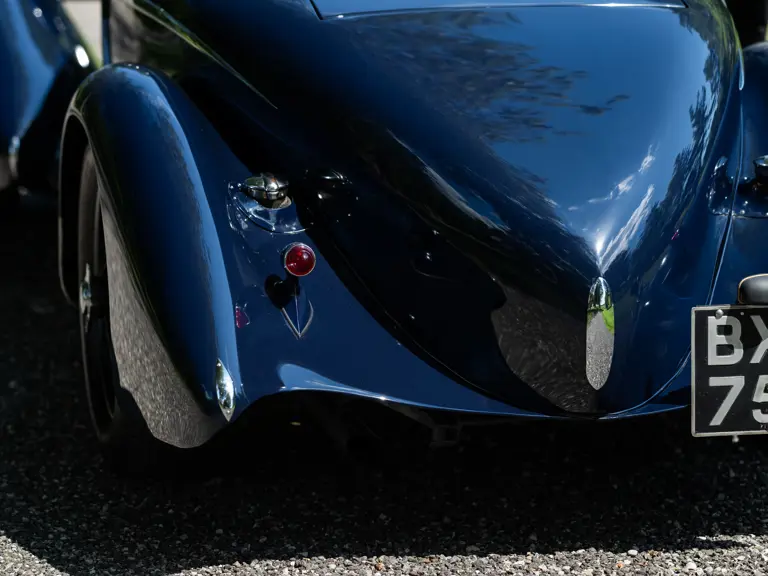
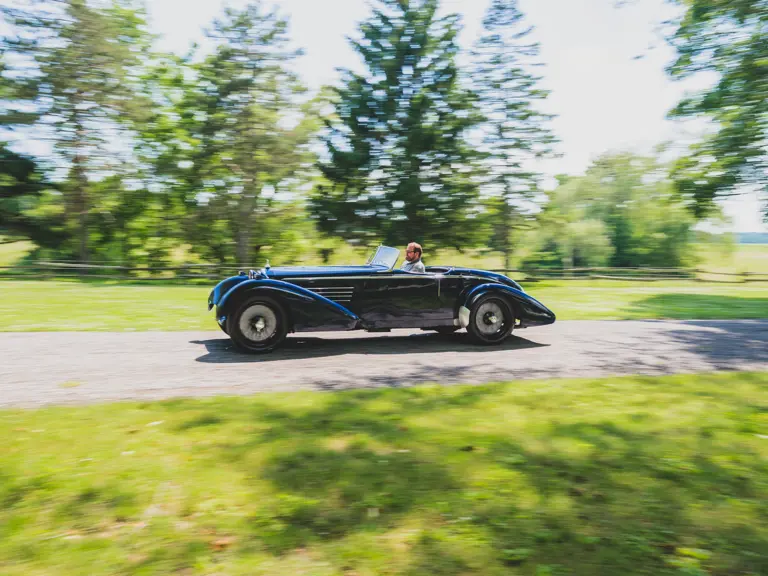
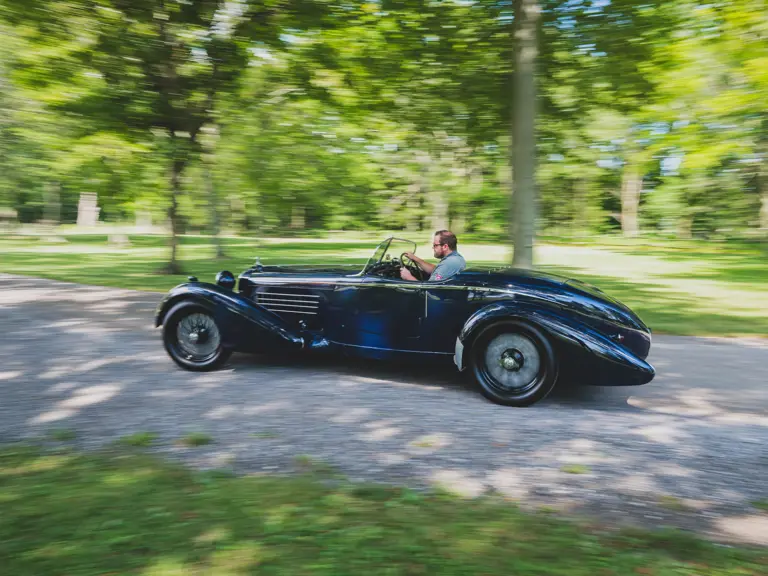
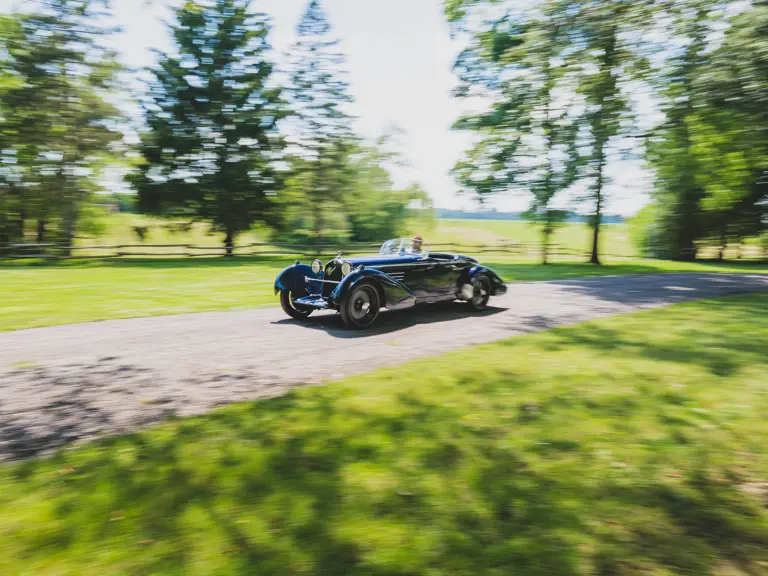
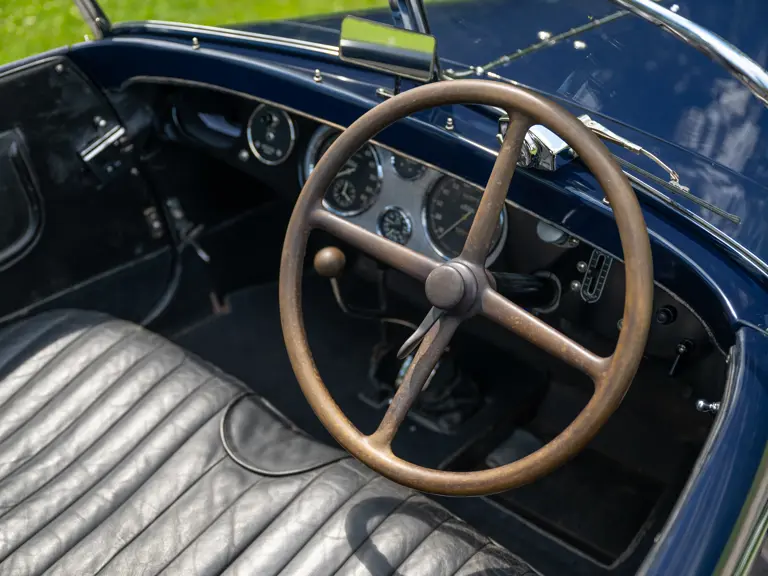
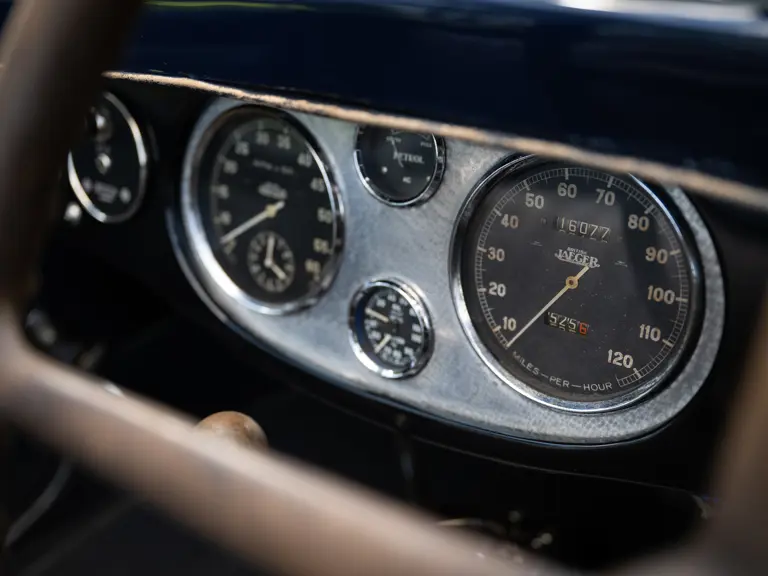
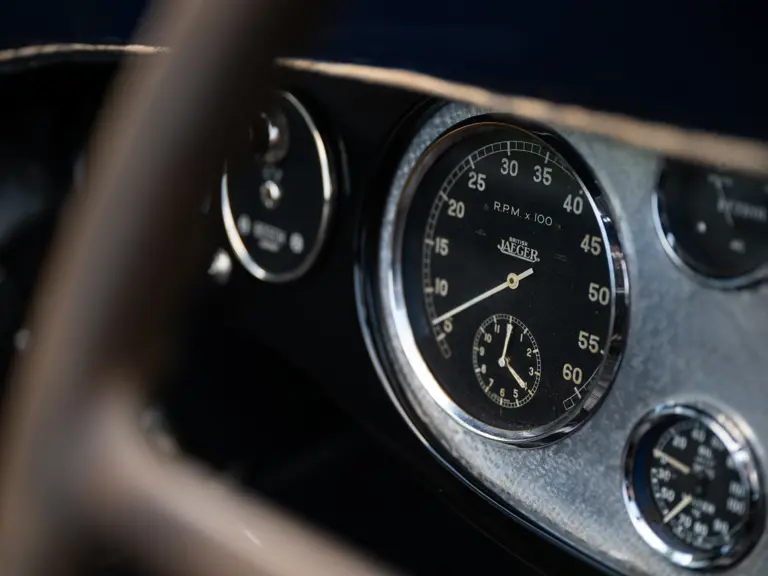
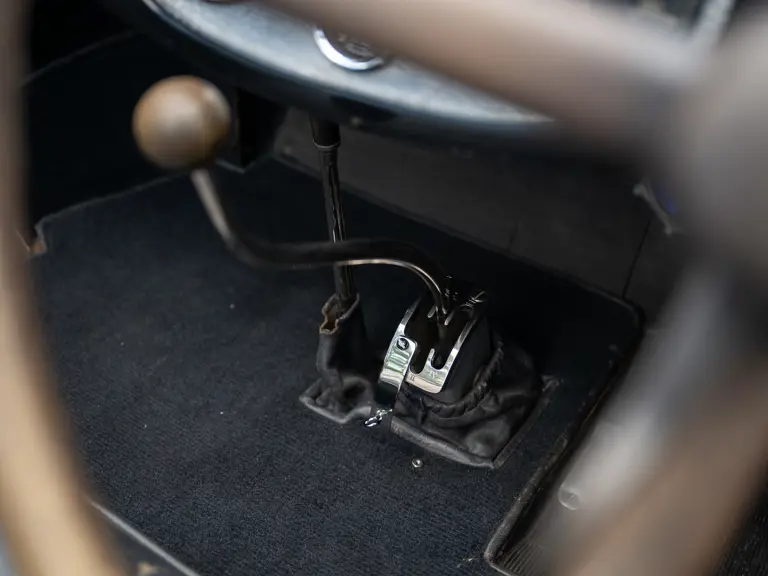
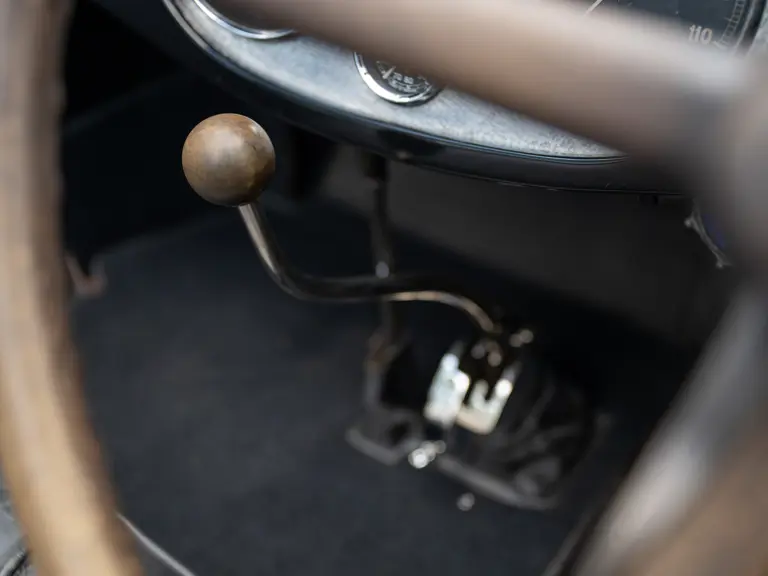
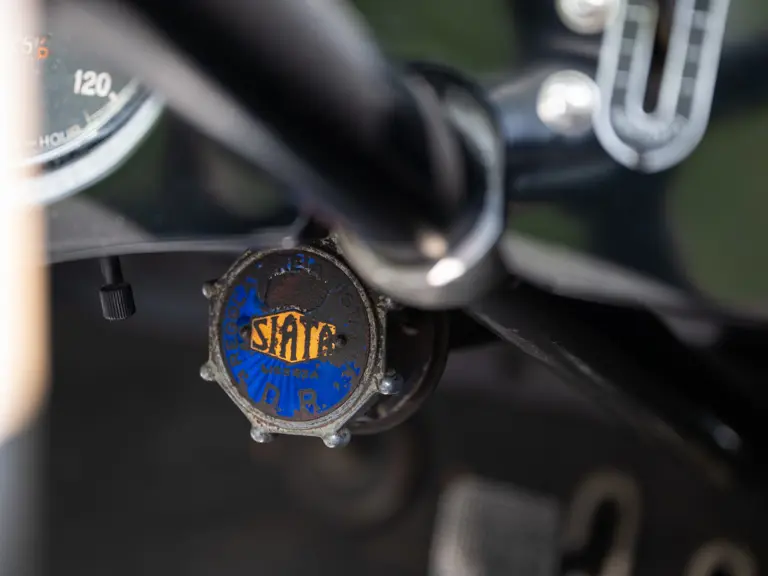
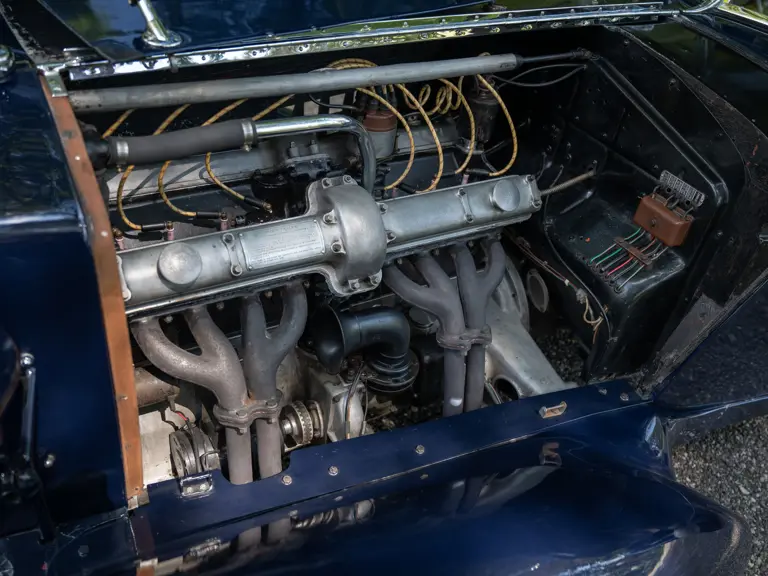
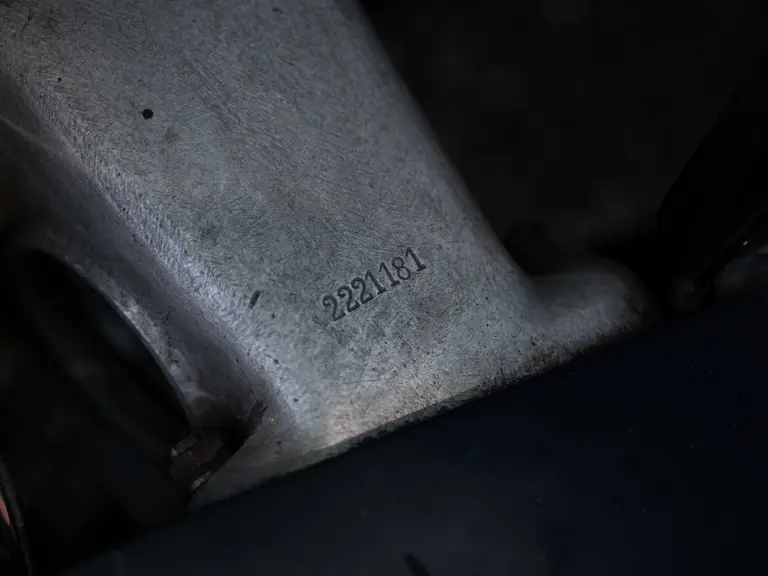
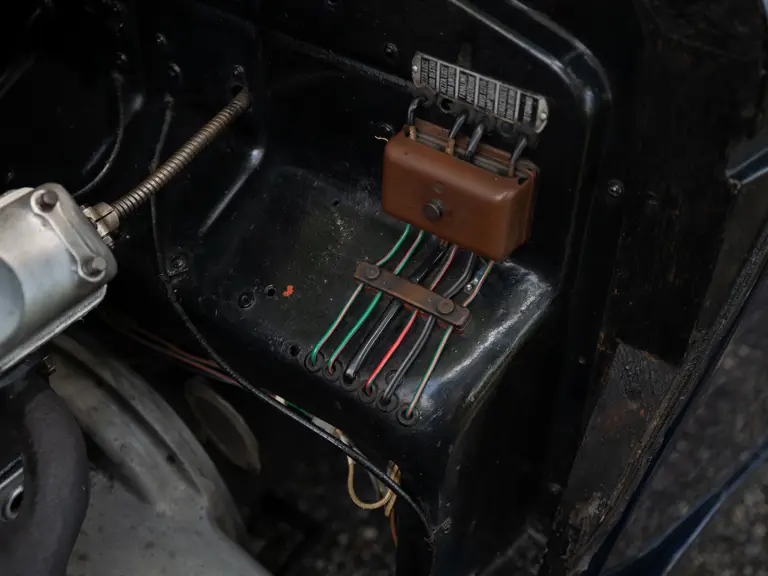
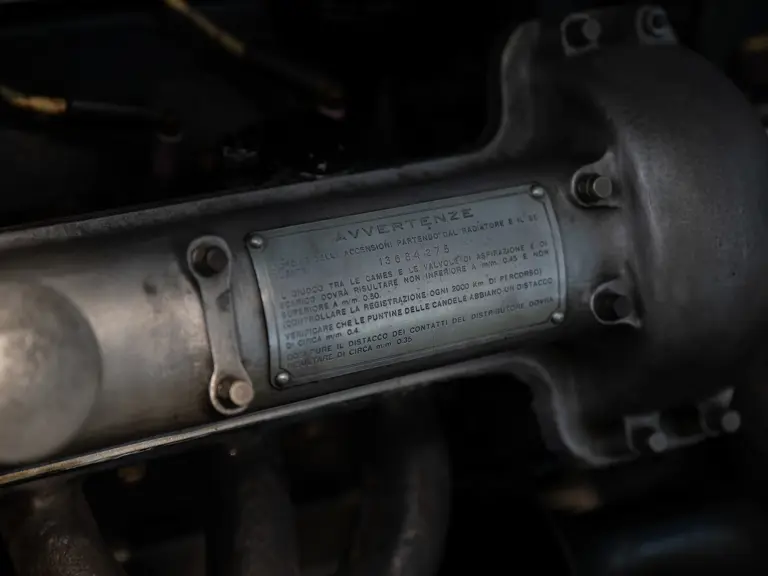
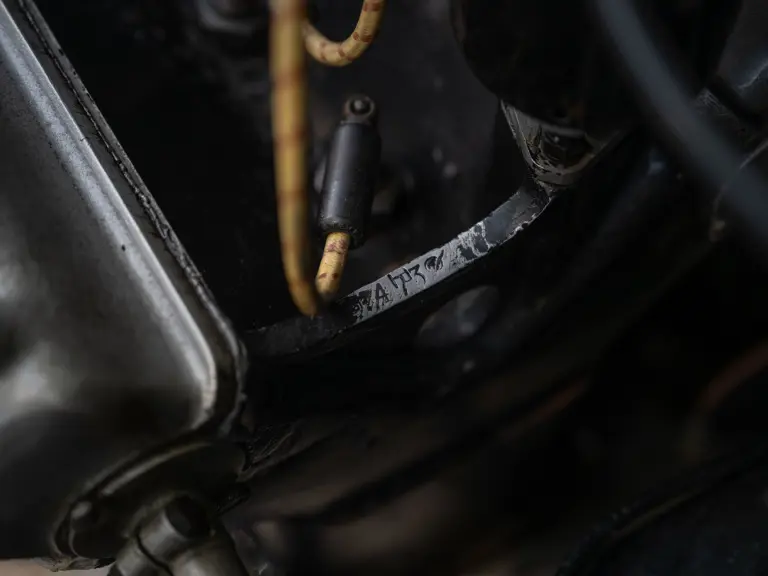
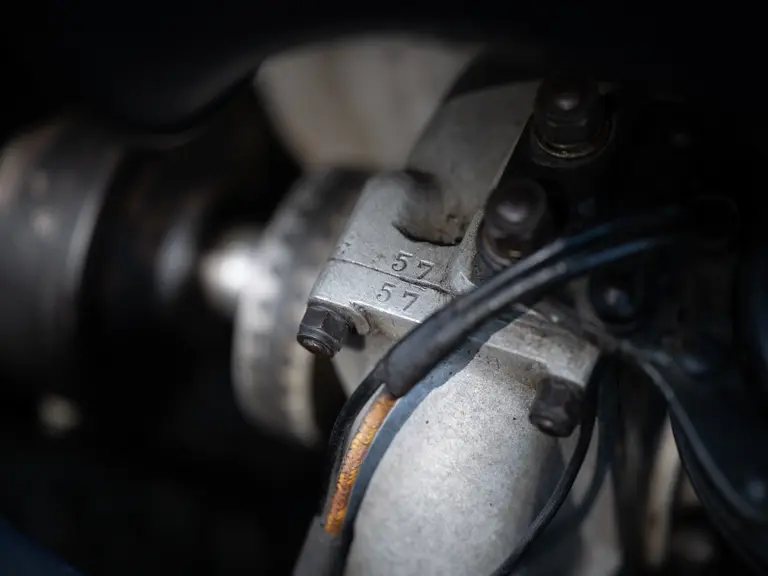
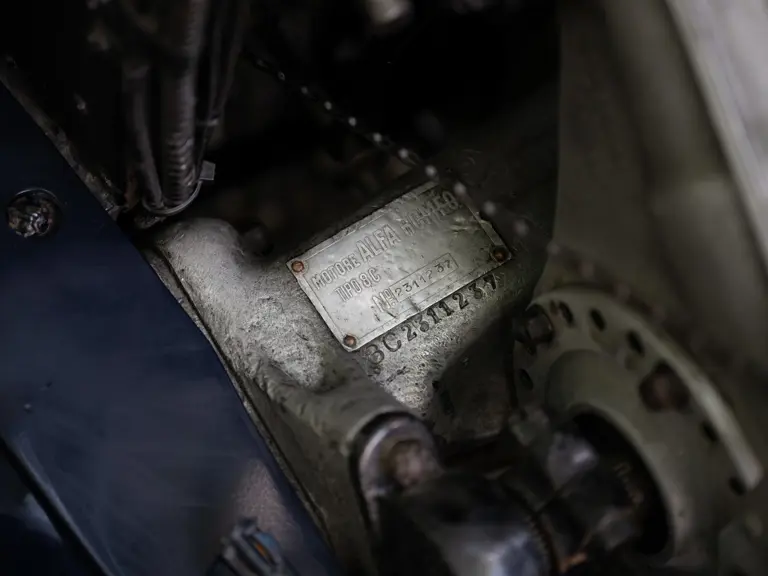
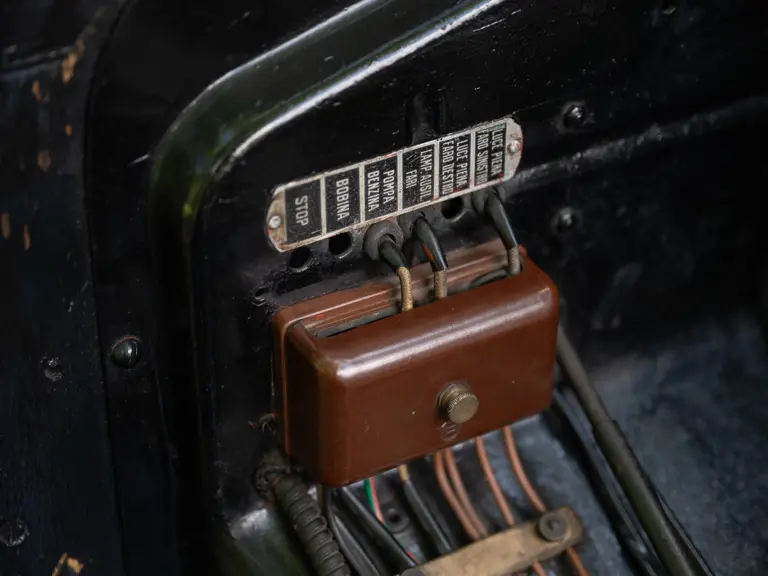
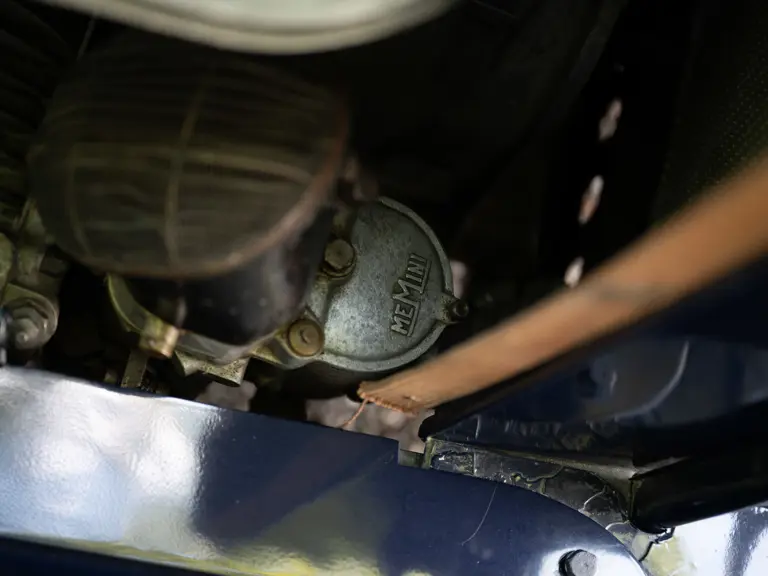
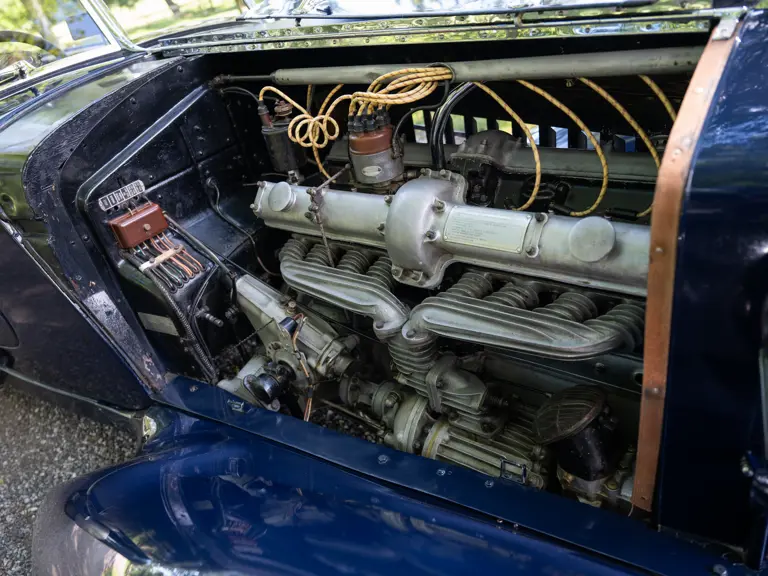
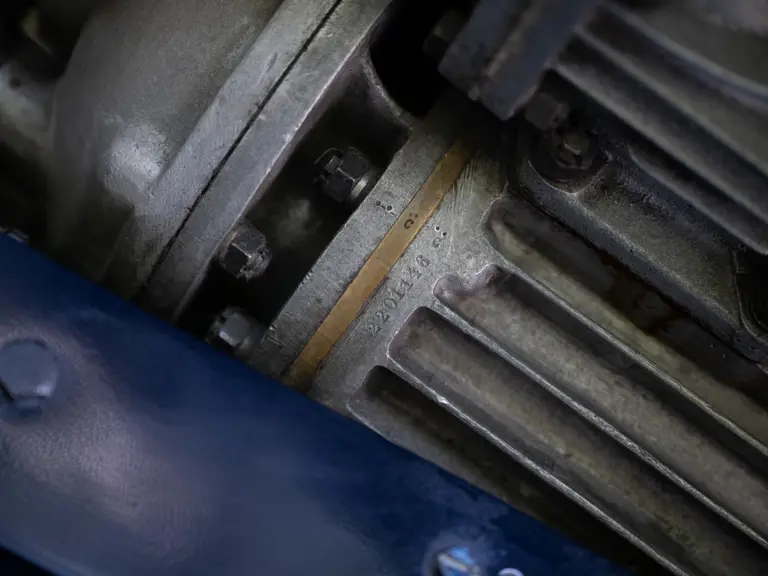
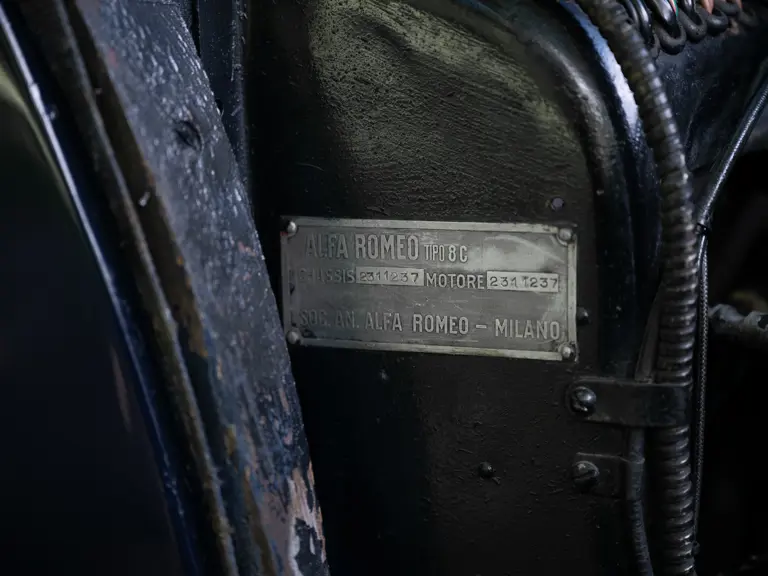
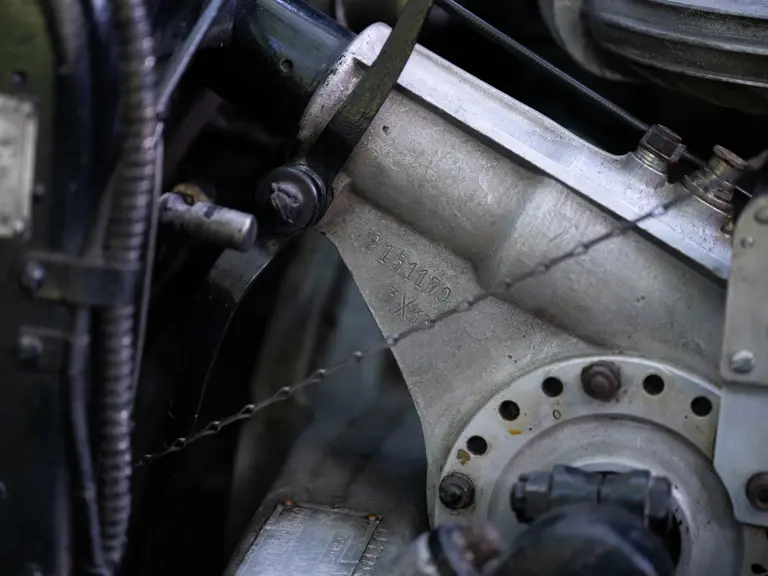
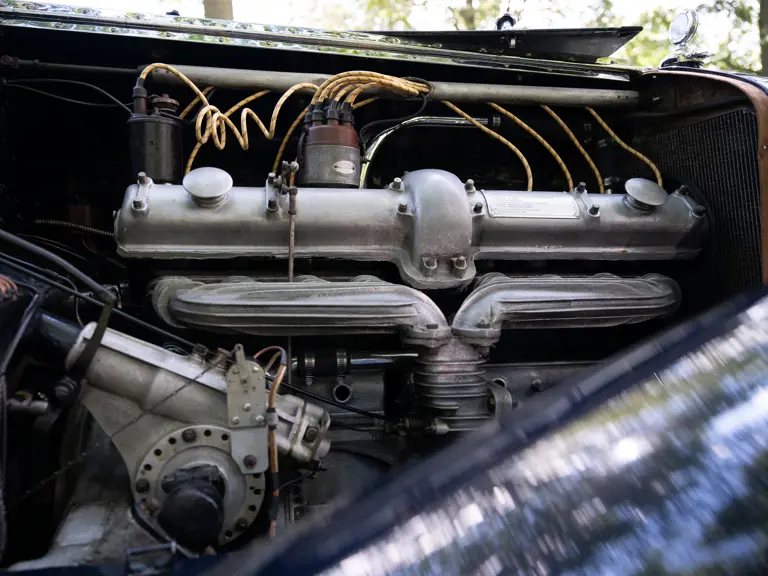
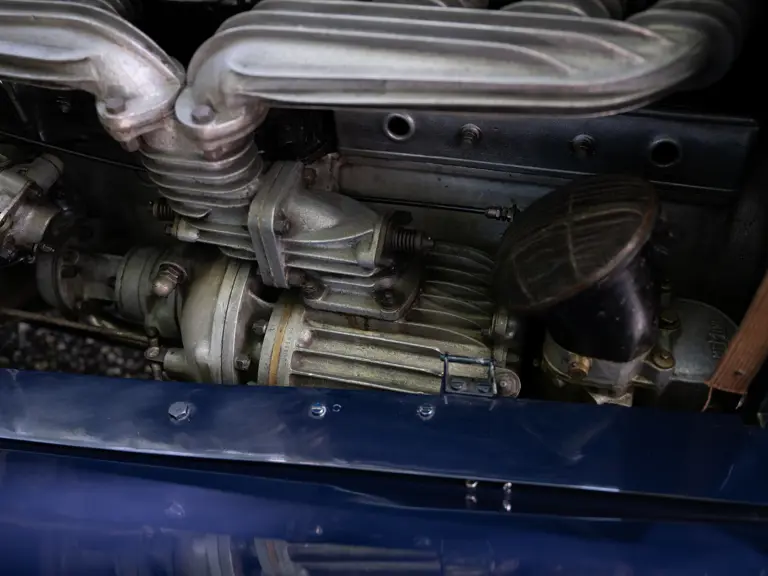
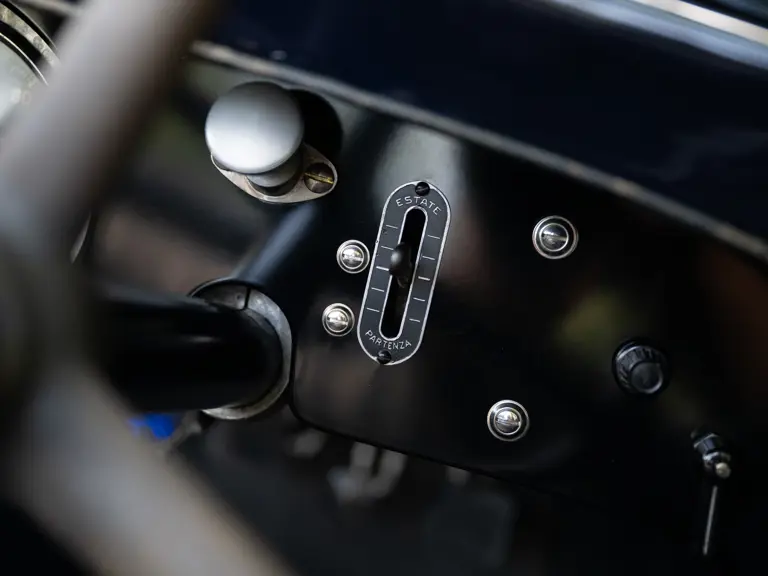
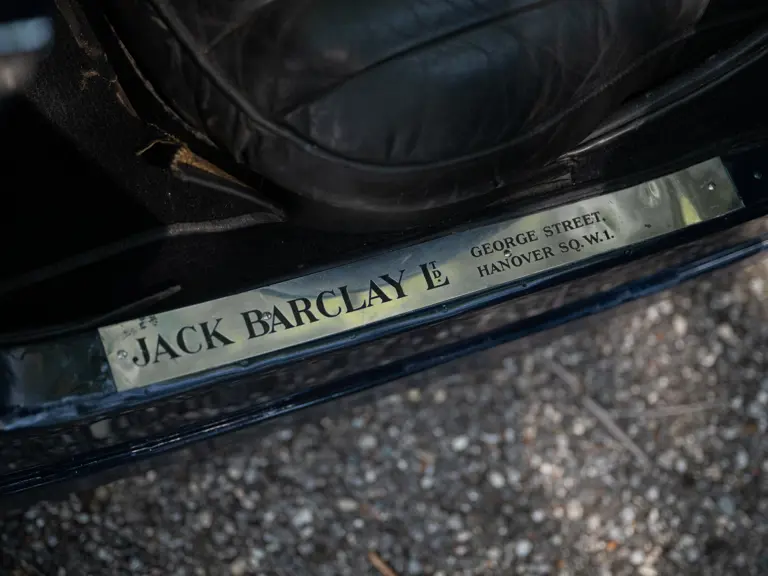
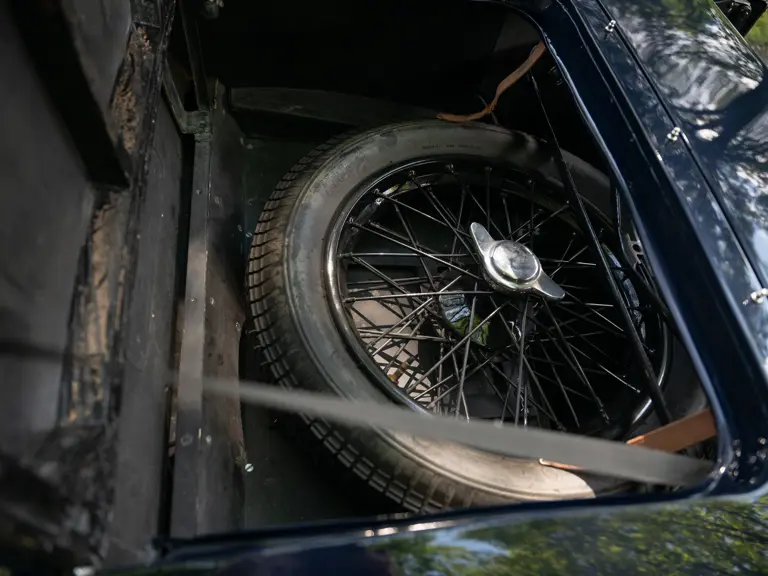
 | Monterey, California
| Monterey, California
